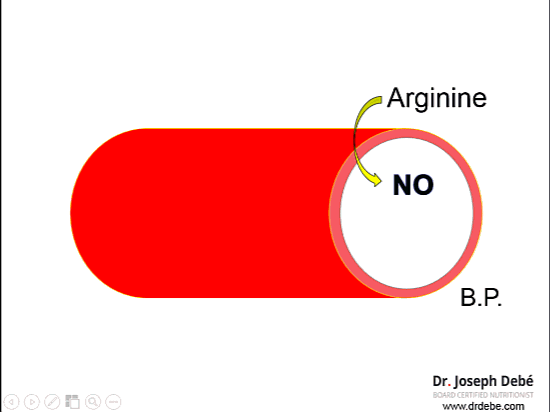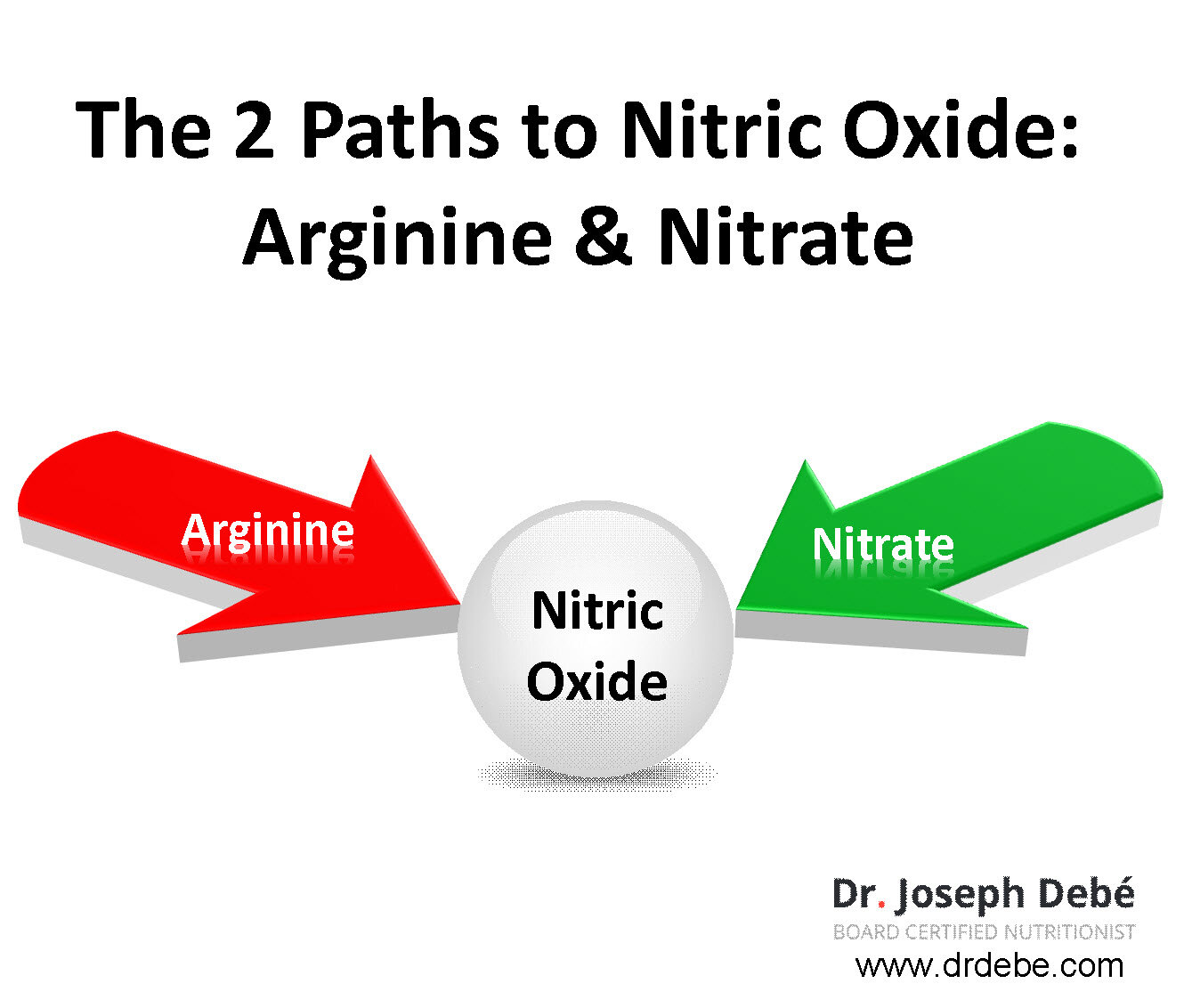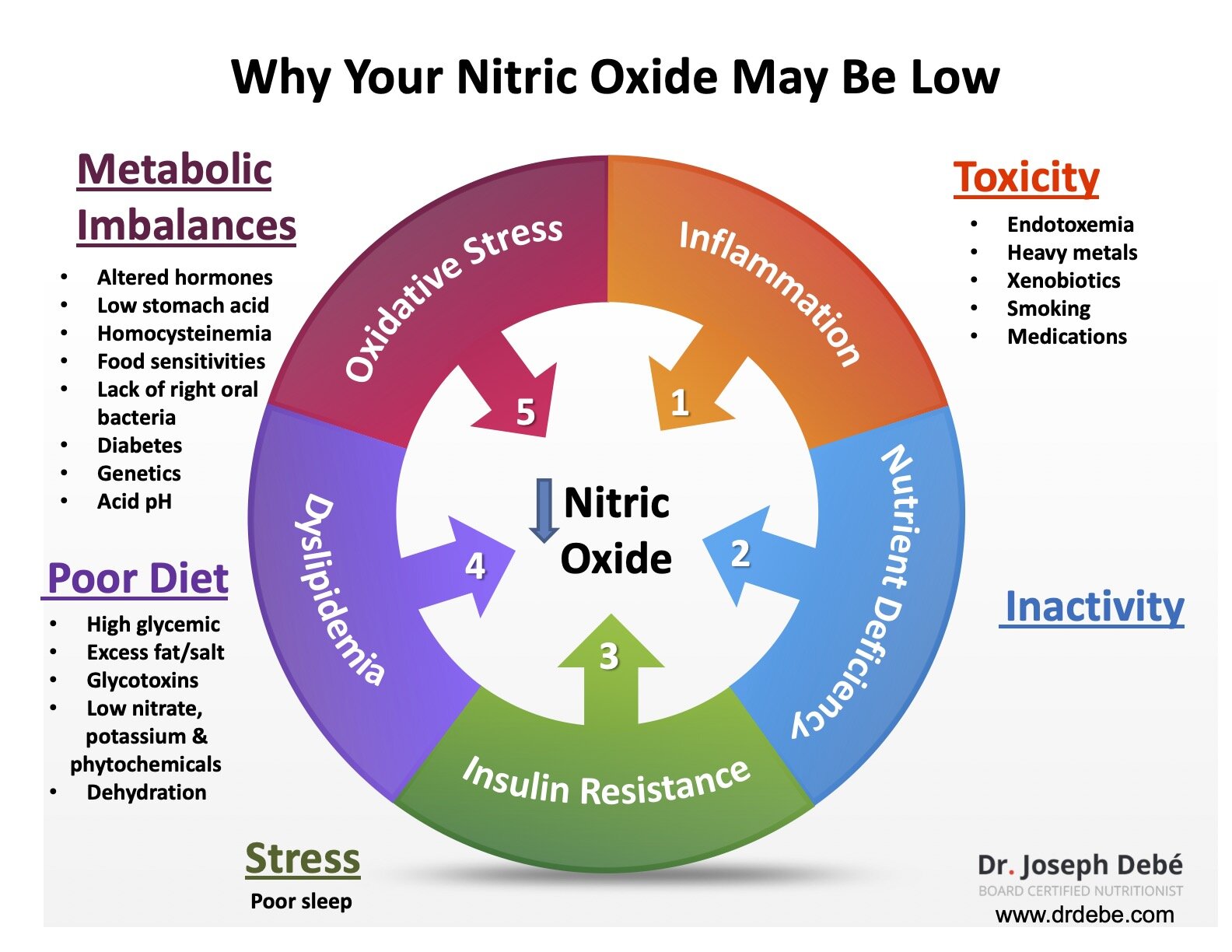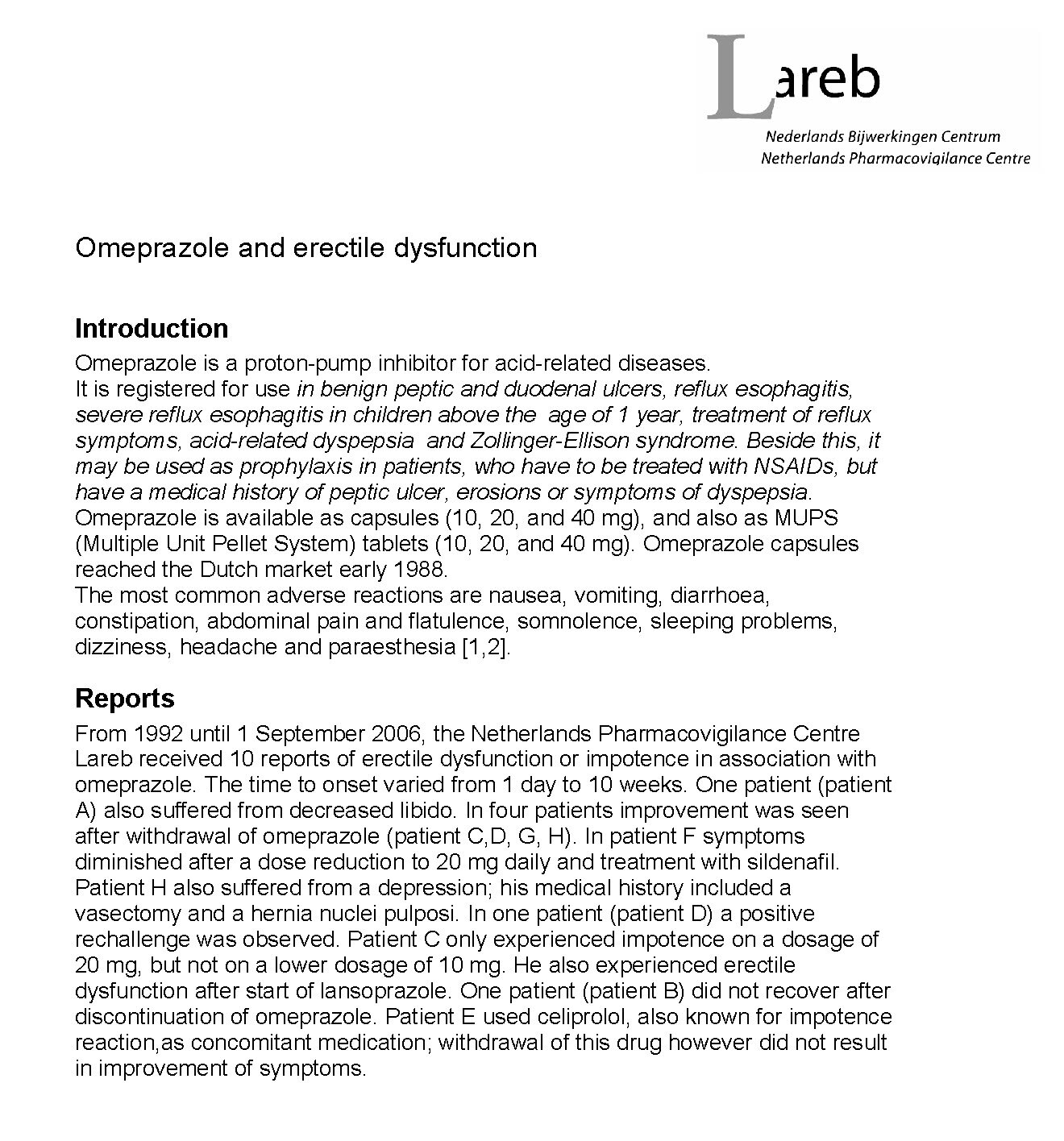"Say N.O. to E.D....Say N.O. to all Disease!"
Last month I discussed a holistic approach to erectile dysfunction and poor vascular health. The focus was on the critical biochemical nitric oxide (N.O.). Nitric oxide plays a key role in blood vessel relaxation and dilation and, therefore, erectile function. Nitric oxide is essential for healthy blood vessels and avoidance of heart attack and stroke. By improving blood flow, nitric oxide plays a pivotal role in nutrient delivery, waste removal, and energy production. This translates into improved function and better health throughout the body. Actually, nitric oxide does many other beneficial things in the body, which deserve attention in future discussions. I explained that nitric oxide levels tend to fall with age. At 40 years of age, you have only 50% of the nitric oxide producing capacity you had at age 20. Nitric oxide is made in two different ways, both of which are affected by many other factors in addition to age.
I focused last month on the arginine pathway. One way the body makes nitric oxide is by enzymatic conversion of arginine into nitric oxide. This conversion can be impaired by genetics and by many factors, which can be evaluated and treated. ADMA is a biochemical that inhibits arginine conversion to nitric oxide. So, high ADMA means less nitric oxide. A few factors leading to increased ADMA levels are genetics, poor kidney function, nutrient deficiencies, glycotoxins, stress, high blood sugar, high cholesterol, inflammation, elevated insulin levels, oxidation (free radicals), and elevated homocysteine.
ADMA reduces nitric oxide, which constricts blood vessels, raises blood pressure, reduces blood flow and impairs erectile function.
The second source for nitric oxide production in the body may come as a bit of a shock. Many people are familiar with nitrates and nitrites and if they are, they probably have a negative opinion of them. This reputation is undeserved and is an example of a popular nutritional myth. After all, was God misinformed when he decided to put nitrate in breast milk?! Nitrate and nitrite are naturally occurring, critical substances in the human body. Nitrate and nitrite are converted to nitric oxide. Where do these come from? I certainly don't recommend eating a lot of bacon with added nitrate to get your quota (because bacon has astronomical levels of glycotoxins). Nitrates are most highly concentrated in green vegetables. The top source of naturally occurring nitrate, by far, is kale. Number two is Swiss chard, three is arugula, and four is spinach. Beets are also a very good source. If you want to increase your nitric oxide levels, consume a lot of these foods. (If you don't like these, click here for an alternative).
Your body can make nitric oxide in two different ways.
When your body's nitric oxide physiology is working well, there is an equilibrium between nitrate, nitrite, and nitric oxide. The diet (the right diet) supplies a good amount of nitrate. As you chew your spinach (for example), bacteria that live on your tongue convert the nitrate to nitrite. Nitrite is swallowed and in the acidic environment of the stomach is converted into nitric oxide. The nitric oxide is absorbed and circulates throughout the body. If you don't eat high-nitrate foods then your ability to make healthful levels of nitric oxide will be impaired. Can you think of other factors that may compromise your nitric oxide levels?
Thoroughly uncovering causes of low nitric oxide: like peelng an onion
About 30-40% of people may lack the right strains of bacteria on the tongue to convert nitrate to nitrite. Two other things that will produce a similar outcome are use of antibiotics (that wipe out all bacteria) and antiseptic mouthwash. Health conditions or medications that impair salivation or swallowing also reduce nitrite delivery to the stomach.
These factors obviously need attention. For example, don't use antiseptic mouthwash and don't use antibiotics more than necessary. Hopefully in the future, science will bring us a test for the oral nitrite-producing bacteria and a supplement to replace them when lacking.
Nitric Oxide Production Can Become Impaired by Many Factors.
Last month I pointed out how a very popular class of medication may lead to low nitric oxide (and resultant erectile dysfunction). I cited an article which found proton pump inhibitor (PPI) drugs raised ADMA levels. ADMA in turn impairs conversion of arginine to nitric oxide. The other potential adverse effect of PPIs on nitric oxide should be a little more obvious. PPIs are the drugs that millions of Americans take for gastroesophageal reflux and related conditions.
Not surprisingly, there have been cases reported of erectile dysfunction with PPI use.
These drugs shut off stomach acid. The other potential weak link in the nitrate-nitrite-nitric oxide chain is inadequate stomach acid. Inadequate levels of stomach acid are more common with age. Roughly 30-50% of people over 65 years of age have low stomach acid. However, It does occur at younger ages for many reasons. Click here for a rough screening test of stomach acid insufficiency. Many people need treatment to get their body producing adequate stomach (hydrochloric) acid. A large percentage have to rely on supplements to replace the acid the stomach is not able to make. (Of course if you are using a medicine like a PPI to shut off your stomach acid then discussing discontinuation of the medicine with your doctor is the first step). Restoring stomach acid levels is an important part of achieving peak nitric oxide status and overall health.
Next month I will wrap up this discussion on how to optimize nitric oxide levels.





